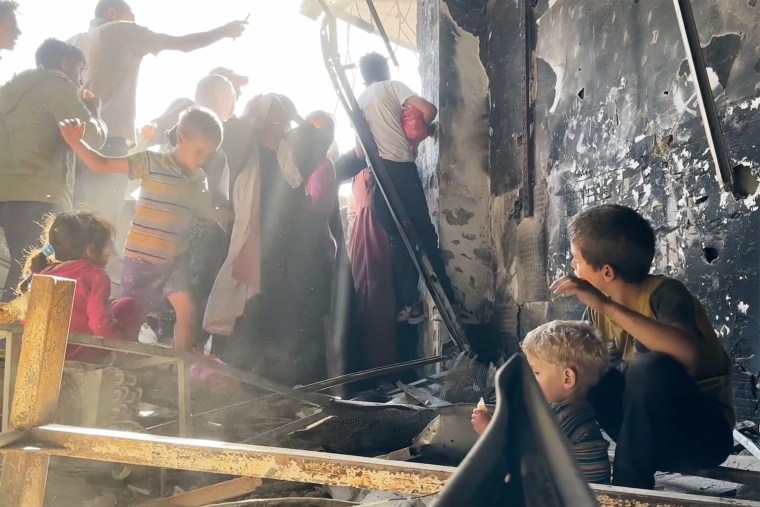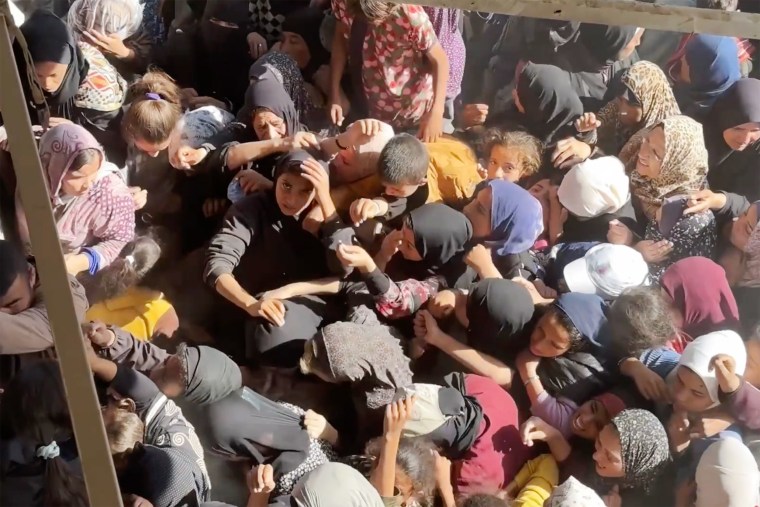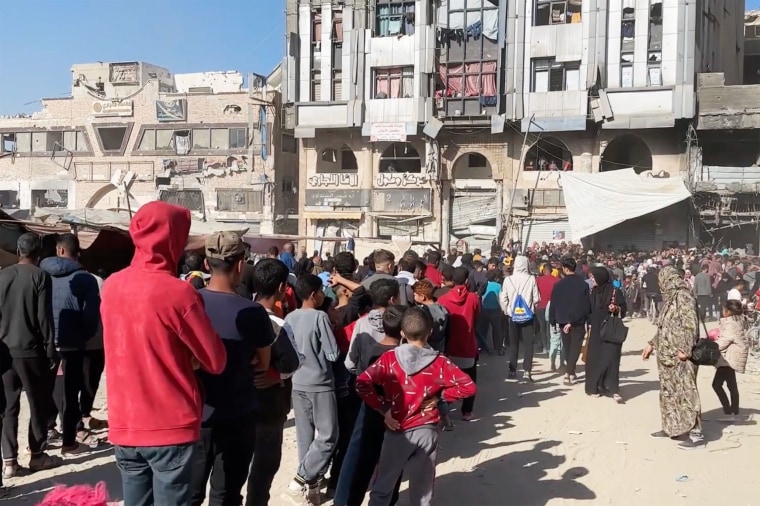Flies buzz around a little blond boy, landing on his face and body as he tries to drink from a plastic bag containing orange ice.
The 3-year-old in a frayed and holey T-shirt, appears unfazed by the destruction and dust, remnants of what was once a functioning store, now reduced to rubble in Gaza’s southern city of Khan Younis.
Crouching next to his brother, Ibrahim, 10, wipes his bare right foot with a piece of paper before helping the toddler take a sip from the bag of ice.
Pulling his brother close with his left hand, he holds the plastic to his brother’s mouth with his right, allowing him drink, before taking a sip himself.
“We came here to get bread for the house,” Ibrahim told an NBC News crew on Wednesday, adding that his family had 11 people. They did not appear to have any loaves.

Nearby, hundreds of men, women and children shout and plead outside Qala Bakery, the only functioning bread shop in the city, surging forward in the hope of grabbing the last of the bread.
Some said they had come away empty-handed after waiting for a few hours. Others said they were reduced to using flour infested with worms.
No one really gets what they need.
“Because of starvation, bread is scarce,” a little girl said, adding that people were “stampeding.”
It is a scene all too familiar in Gaza, where the global authority on food security warned last week that more than 40% of people will face “catastrophic” levels of hunger in the coming months.

The Integrated Food Security Phase Classification, which sets a scale that the United Nations and governments use to assess hunger, said there will be a persistent risk of famine in Gaza this winter unless more humanitarian aid reaches the Palestinian enclave.
Health officials in Gaza say at least 43,000 people have been killed in Israel’s military campaign there following Hamas’ Oct. 7, 2023, terror attacks, in which about 1,200 people were killed in Israel and 250 people were taken hostage, according to official tallies. Around 100 people remain in captivity, although a third are believed to be dead.
Large swaths of Gaza have now been destroyed in the war and around 90% of its population of 2.3 million people has been displaced.

The situation prompted Secretary of State Antony Blinken to warn Israel that its steps to increase aid into the enclave were insufficient, during meetings with officials in the country on Tuesday, a senior State Department official told NBC News.
Blinken made clear that the U.S. needs to see more action, the official said. While the U.S. had seen initial progress in certain areas, Blinken said, according to the official, “the steps that are taken thus far have not been sufficient.”
Israeli leaders told Blinken that it is not Israel’s policy to isolate northern Gaza, the official said, reiterating the country’s longtime stance.
The meetings came after Blinken and Defense Secretary Lloyd Austin, in a letter earlier this month, gave Israel 30 days to increase basic humanitarian aid to Gaza or risk restrictions on U.S. military assistance as required under U.S. law.






